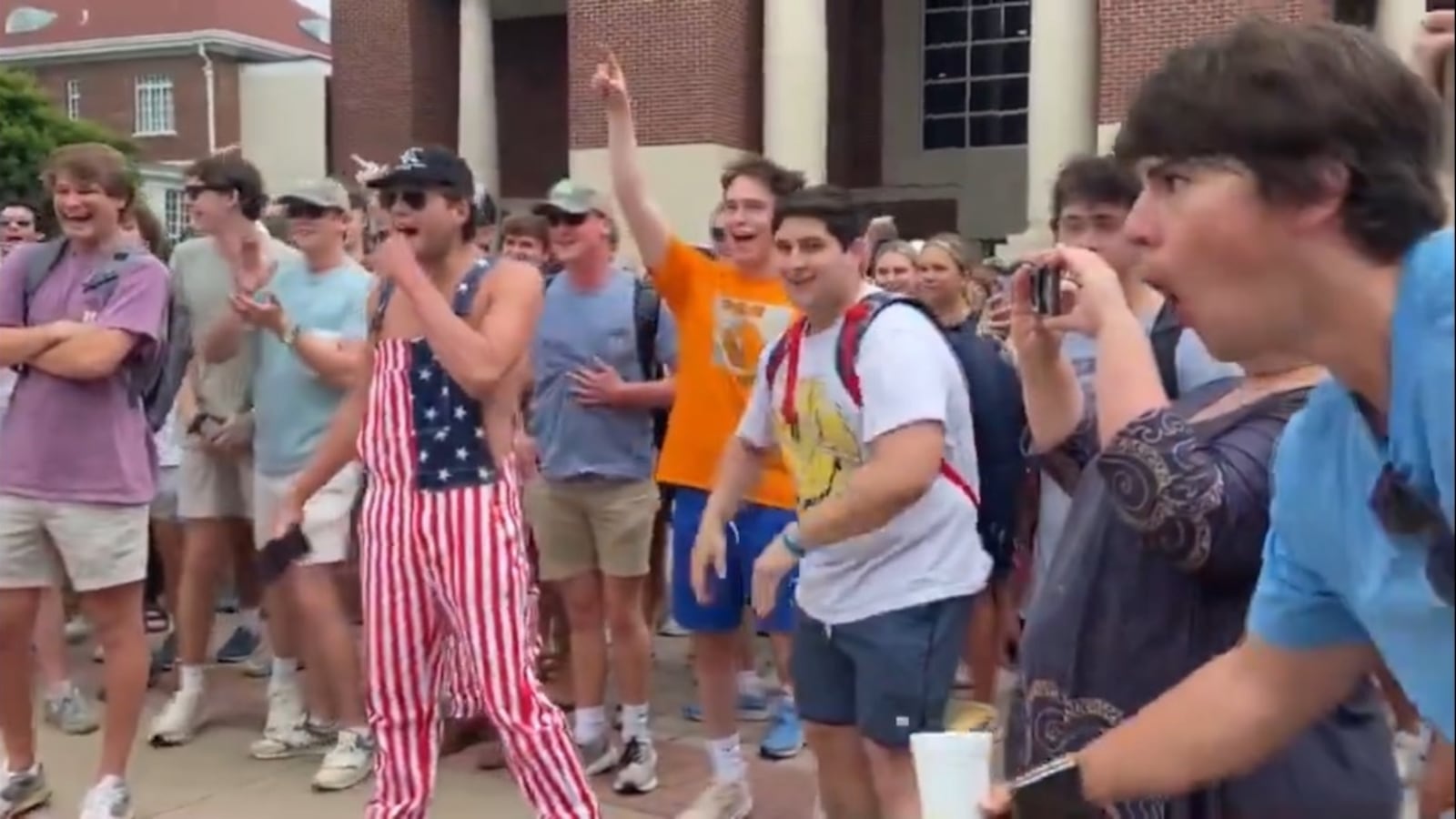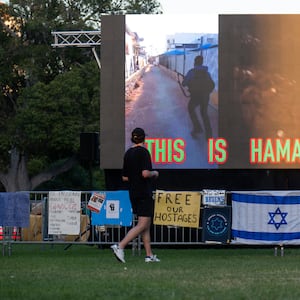The University of Mississippi student who was seen on video making monkey noises and jumping up and down to mock a Black pro-Palestine protester has been expelled from his fraternity after his actions went viral on social media.
The fraternity, Phi Delta Theta, announced in a statement on Sunday that the man in question had been swiftly removed from the organization. The student, James “JP” Staples, was identified on Instagram by the NAACP.
“Phi Delta Theta General Headquarters is aware of the video regarding the student protest at the University of Mississippi,” the statement reads.
“The racist actions in the video were those of an individual and are antithetical to the values of Phi Delta Theta and the Mississippi Alpha chapter. The responsible individual was removed from membership on Friday, May 3.”
It was unclear whether Staples would be allowed to rejoin the organization at Ole Miss or any other chapter in the future. Kate Fulmer, spokesperson for Phi Delta Theta’s national headquarters, told The Daily Beast that the decision to expel Staples was made in consultation with other groups.
“In partnership with local alumni, undergraduate leadership, and the university, disciplinary due process was initiated which resulted in the removal of membership. The situation will continue to be monitored in cooperation with any further investigation,” Fulmer said.
The fraternity’s announcement came just days after the university launched a student conduct investigation into at least one student as a result of the racist counterprotest encounter.
In a letter addressed to the campus community on Friday, Chancellor Glenn Boyce said the university was aware of behavior that was “offensive, hurtful and unacceptable, including actions that conveyed hostility and racist overtones,” although he did not clarify that it was pro-Israel counterprotesters who lodged those racist attacks.
“While student privacy laws prohibit us from commenting on any specific student, we have opened one student conduct investigation. We are working to determine whether more cases are warranted,” Boyce wrote.
On Thursday, counter protesters overwhelmed a small demonstration in support of Palestine, which had been peacefully assembled on the grassy area of campus. Counter protesters surrounded the fenced-off protest area and chanted things like “Hit the showers!” and “Your nose is huge,” the nonprofit news outlet Mississippi Today reported.
The jeers were especially vicious toward a Black female protester who separated from the rest of the protest encampment. Video showing a group of mostly white male counter protesters mocking her quickly went viral after they hurled taunts like “Lizzo!” and “Lock her up!” as she was guided away by police.
In his message, Boyce said that kind of harassment was unacceptable.
“We will not tolerate discrimination, intimidation, harassment or bias of anyone in our campus community. To be clear, people who say horrible things to people because of who they are will not find shelter or comfort on this campus,” Boyce continued.
Elected officials said otherwise. Rep. Mike Collins (R-GA) proudly reposted the video and captioned it, “Ole Miss taking care of business.” Governor Tate Reeves tweeted his approval with footage of the counterprotests.
“Warms my heart,” he wrote.
The confrontation drew comparisons to the 1962 protests, when its white student body found themselves in uproar over the decision to admit a single Black student, James Meredith. Ole Miss, which has long been entwined with Confederate history, continued to be a site of cultural conflict through the late 2010s and 2020s, when students rallied to remove Confederate monuments from campus that they argued were glorifying slavery.
It’s a legacy the school—which takes its nickname from enslavement era language—still grapples with. In his Friday message, Boyce faintly alluded to the school’s ties to the Confederacy without naming it.
“While we are a modern university with a vibrant community of more than 25,000 people, it is important to acknowledge our challenging history, and incidents like this can set us back,” Boyce wrote.
Though Black Mississippians make up nearly 40 percent of the state’s population, they are vastly underrepresented at the university, where Black students make up only 11 percent of the student body.






